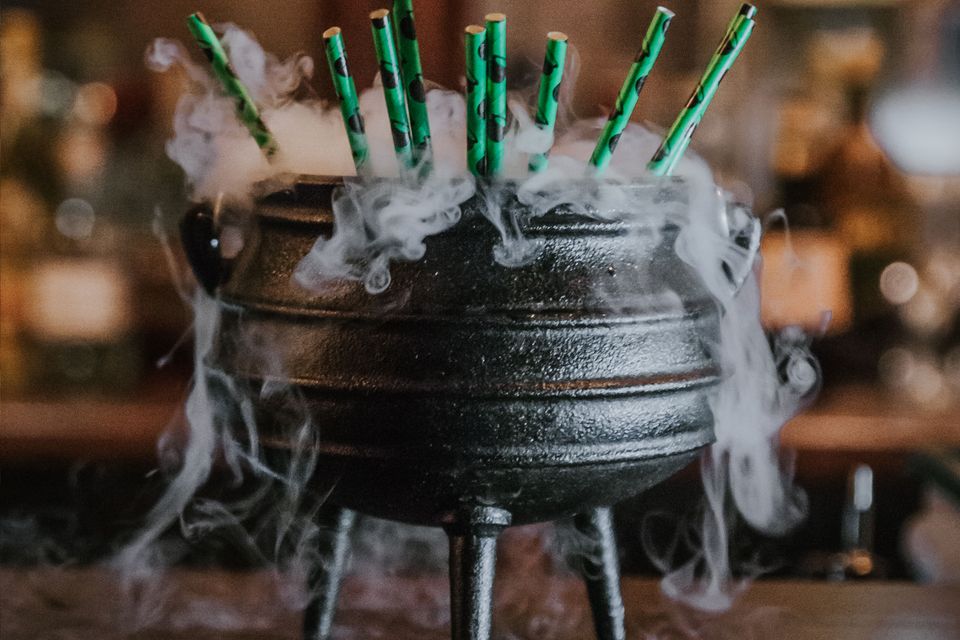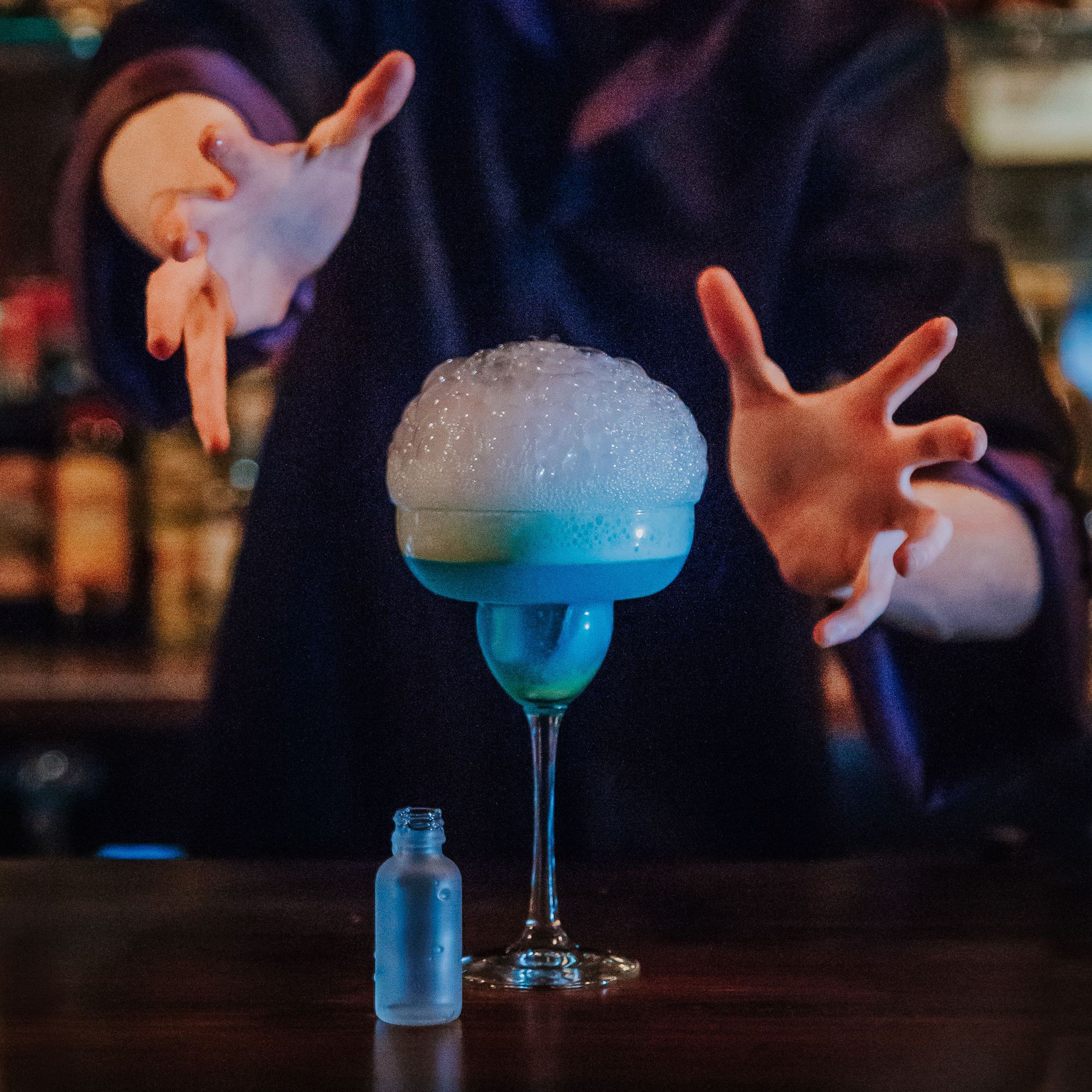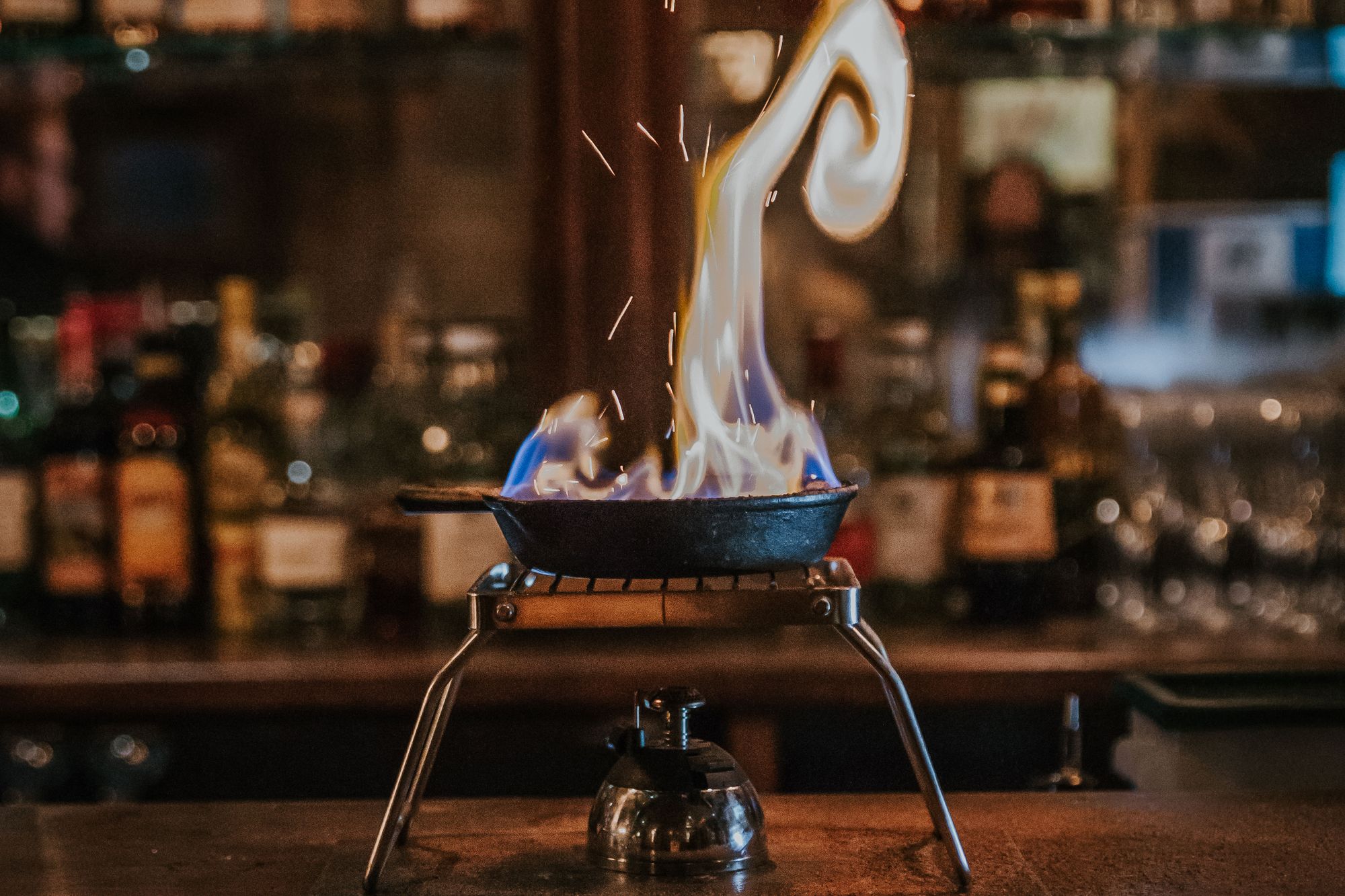A fantasy-themed bar brings the magic of chemistry to life

This post is part of "Boldly Growing," a Science of Fiction series about the future of food production (and on occasion, the magic of mixology). Check out the rest here.
Magical potions that heighten your senses, change your appearance or trick your crush into thinking they're crazy about you are a mainstay of popular fantasy, from Harry Potter to The Legend of Zelda. But if magic is simply science we don't understand, aren't potions just clever applications of chemistry and physics?
That's how bartender, chemistry enthusiast and aspiring wizard Dave Duckworth sees it, which is why he founded The Cauldron, a fantasy-themed gastropub that brings the magic of molecular mixology to life. After opening its doors in London and New York City in 2018, in May The Cauldron opened its newest location in Philadelphia's gayborhood. The bar, where servers wear wizard's robes and glittering, rainbow-lit unicorn busts dispense drinks into cups, blends Harry Potter vibes and hands-on chemistry demos in a way that Duckworth hopes will entertain and inspire.
"Really our whole ethos is about bringing magic to life," Duckworth told The Science of Fiction. "It’s about taking what people have seen in the fantasy movies, in books, and in their imagination, and making it possible in front of them."
A theater major from a family of scientists, Duckworth's interests in showmanship and chemistry have shaped the interactive drinks on offer, while co-founder Matt Cortland's love of fantasy literature permeates the bar's aesthetic. (Duckworth says he enjoys fantasy "as much as anyone" but has always been more of a sci-fi fan.) Visitors who purchase tickets to the bar's signature potions experience get to cosplay students in a Hogwarts potions class, donning robes and following recipes to brew libations that magically smoke, bubble, and change color. But what they are really doing is engaging in molecular mixology: blending ingredients in a way that produces an effect because of the chemical interactions inside the cauldron.

If patrons want to learn about the science behind their drinks, they can raise an interactive wand in the air to summon a "potions master" and ask questions. They might, for instance, be interested in learning about the chemical reactions that cause the Transfiguration Tonic—a lemon and lavender martini—to change color, or how careful applications of heat and cold cause the rum, thyme, and lemon juice-based Lost Thyme to bubble and smoke.
"Or they can just take it for what it is and enjoy the magic," Duckworth said.
In addition to the drinks that patrons can make in the hands-on potions experience, visitors to the bar can order potions crafted by experts. These, too, rely on basic principles of chemistry and physics to produce a magical effect. The huge fireball produced when a potion master crafts the fruity, rum-based Dragon's Breath showcases the Leidenfrost effect; the bright green Bubbling Shots of Death roil as fairy dust (dry ice) sublimates from a special container beneath the melon-flavored drinks. The Blob, a bright blue, tequila-based drink that looks like something that escaped from a biotech lab, grows out of the glass as bubbles are pumped through soy lecithin, a binding agent whose hydrophobic (water-loving) and hydrophilic (water-hating) properties are useful for creating emulsions and culinary foams. When they're coming up with new drinks, Duckworth says that the team typically starts with the effect they want to see, like color change or clarification, then engineers a process to produce it.
The interactive wands patrons receive at their tables are another clever bit of science masquerading as magic: Invented by Cortland and a team of engineers, these 3D-printed, battery-operated devices have embedded technology that allows them to interact with various elements of the bar, including the unicorn drink dispensers on the back wall and magical runes that light up when tapped. Sensors inside them even track your bar tab.

While many elements of The Cauldron experience feel inspired by specific works of fantasy (the "Elven bread" that's sometimes on the menu is a clear homage to Samwise Gamgee's least favorite backpacking snack), the company is careful to make clear that it is not affiliated with a particular text or series, noting in a disclaimer on its website that it is "broadly inspired" by fantasy and science fiction "and is a place for fans of magic."
It's also a place where everyone—drinkers and non-drinkers, adults and kids—can nerd out together, with most of the potions available in non-alcoholic versions. Duckworth says it was important to make the The Cauldron as accessible as possible: After all, you don't need to be 21+ or a drinker to love fantasy and science and want to immerse yourself in both.
"Generally, people coming in here are after a couple of things," Duckworth said. "They’re after an experience, and they’re after fun. And that’s really what we’re based around."